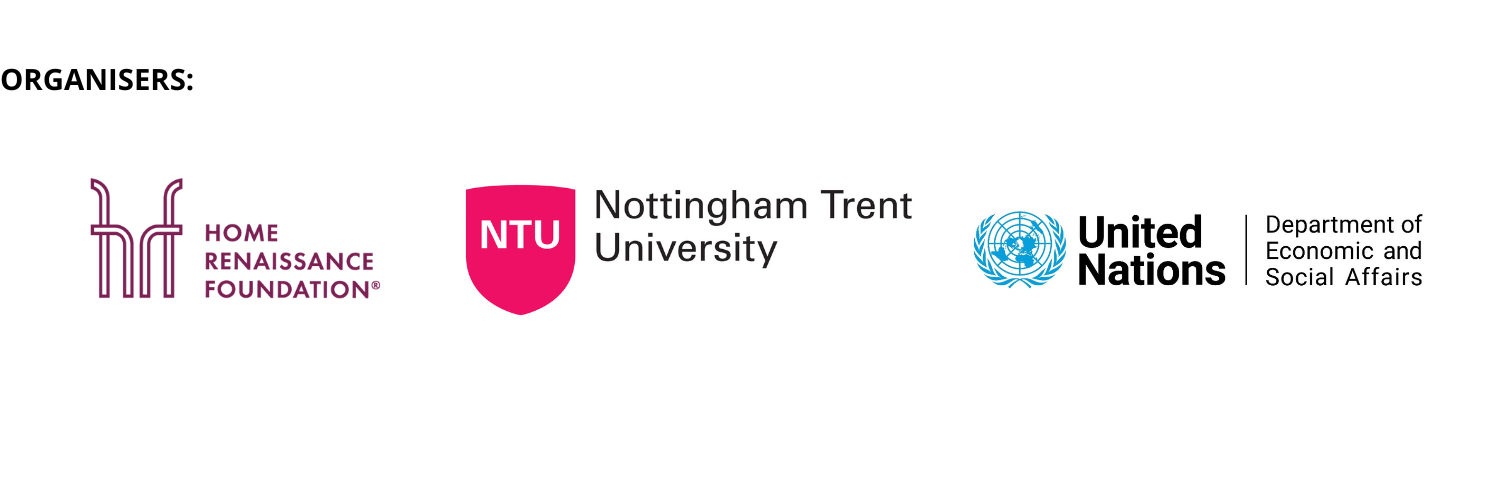Experts Meeting 2023 | Home and Climate Change
Understanding the power of home to transform societies in the face of Climate Emergency
28-29 September 2023 | Nottingham Conference Centre, Nottingham Trent University, UK
Academic Leaders: M. Gamal Abdelmonem and Antonio Argandoña
This Expert Meeting aims to explore the role home and family play in the transition towards a sustainable and carbon-neutral planet, where our Carbon footprint is neutralised by offsetting our consumption with the production of clean energy and a sustainable lifestyle. Building on the lessons learnt during COVID-19 Pandemic, and the global response to a universal emergency, this meeting will bring experts, scholars and scientists from diverse disciplines, professions, and research backgrounds to debate the challenges and opportunities facing the home as societal institutions to achieve that goal. It tries to respond to a key question, ‘how can we engage more effectively with the home and family as a resilient unit to help societies and economies compact Climate Change?’
See here the full Document
See the participants biographies
Key themes/ strands
1. The Care of the Planet: Love and Care at the Heart of Climate Response
Our planet is our shared home. It is key to our survival and our perception of living. On the personal and cultural levels, we care for our planet because we truly understand that the planet is our home. As we ought to take care of our individual and most intimate homes, it is also imperative to take care of the all-encompassing home, on which we live and the one that houses and shelters our nations. Under this strand, we will discuss the philosophical meaning of love and care within the context of care for the home and family. It connects the universal home, the planet and its wellbeing, to the very personal and intimate home of the family.
2. Climate Change & Public Health: The Health and social care of the Home
This strand will discuss current and projected impact of global warming on family members and potential risks to essential support systems in healthcare, social care and wellbeing of individuals and vulnerable groups. Many studies reported the effects of extreme weather and heatwave on the health of older and more vulnerable people who need care. This covers variable factors that influence our health, from direct impact through excessive heatwave, torrential rains, wildfires, poor air quality, and enduring dry seasons to indirect ones that result from the limitation to our healthcare systems and their capacity to increasing demands. This strand will distil the multiple studies and evidence on such change on households and potential risks. It will then recommend a set of steps that enable future healthcare policy to counter those impact and prepare the state response mechanism in the context of adverse conditions.
3. Consumption & ecological footprint: Energy, Food and Transportation
This strand will focus on everyday lifestyle and consumption, through multiple examples of household consumptions in both developed and developing world. It will put into perspective the disparities of CO2 emissions and consumption of energy though work, food supply chain and transportation (essential and luxury). Whilst studying current patterns of societies, it will summarise best practice in active reduction of carbon emission in progressive states and cities to recommend practical steps in achieving sustainable lifestyle and consumption patterns.
4. Remote economy and home-based work: digital homes changing economic and Work/Life balance
This strand will pick on several studies that debate the critical role the redistribution of economy, job markets and trade in offsetting the carbon consumption through remote patterns of work and trade from home. It will look at recent change in economic operations, and digital infrastructure that are needed to support families working from home and connect them to wider network of trade and markets. It will gather evidence on how this model may or may not support a permanent shift in our life/work balance at home and how we can be active economically with minimum use of travel and public transportation. This strand will map effective economy and corporations that relied managed to remain active during the Pandemic, those new economies that emerged to compete with traditional sectors.
5. Connected Locality: Net-Zero Homes & Neighbourhoods
Under this strand, we aim to discuss the design of carbon neutral housing and the development of net-zero cities through multiple models around proximity of the family to essential services, markets, local supplies. It considers the effective and practical impact of the 20-minute neighbourhood model, where self-sufficiency of family needs and domestic network of supplies, services, and daily needs exist in walking distance of 10 minutes. It will investigate architecture, innovation and artificial Intelligence in the make-up of greener homes and developing new forms of construction to cope with periods of torrential rains and extreme temperatures.
6. Building Climate Resilience: Raising awareness through art and culture and education
Under this theme, we aim to explore what means of art and cultural education can help young individuals for developing awareness of the role of their homes and families in responding to climate emergencies and its consequences, like increased deprivation, displacement, and health risks. It will investigate our learning institutions consideration of the home, family practices and power of education to change societal attitudes towards the environment. It will study the influence of public art and culture in shaping the public knowledge and awareness of the centrality of the environmental concerns to every day’s life of the home and family. This will consider art and culture response to extreme weathers and natural disasters as a man-made catastrophe.
